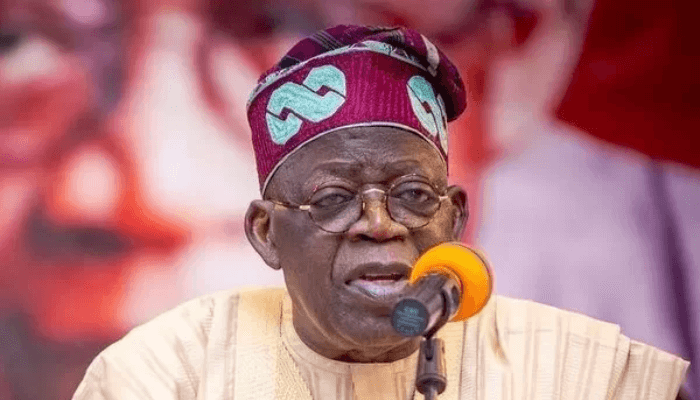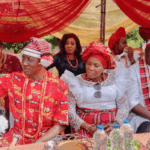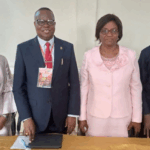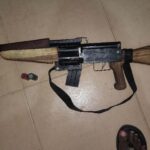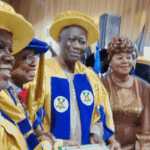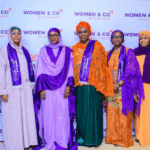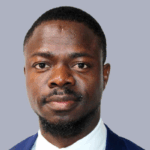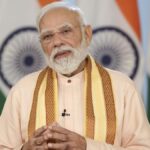When President Bola Ahmed Tinubu announced sweeping changes to Nigeria's military hierarchy on Friday evening, the news drew mixed reactions across the country. For some, it was a strategic move to restore confidence in the military, which is facing persistent security challenges. For others, the timing, barely a week after rumors of a coup plot, was too coincidental to ignore.
Presidential spokesperson Sunday Dare made the announcement in a statement that read like a script of urgency.
“The new Chief of Army Staff is Major-General W. Shuebu; Air Vice Marshal SK Aneke is the Chief of Air Staff; while Rear Admiral I. Abbas is the new Chief of Naval Staff. Chief of Defense Intelligence, Major-General EAP Undiendye has retained his post,” Dare said. He said the appointments came into effect with immediate effect.
Former Army Chief of Staff, General Olufemi Oluyede also took over as the new Chief of Defense Staff, replacing General Christopher Musa, in one of the most significant changes to the Nigerian Armed Forces in recent years.
Also read: Tinubu's reshuffle aimed at reviving security, has nothing to do with coup rumors – Presidency
Shadow of the coup that was not
Barely a week ago, online newspaper Sahara Reporters alleged that a group of military officers were plotting to overthrow the government of President Tinubu. The report, which quickly gained popularity on social media, linked the detention of 16 officers to the alleged scheme.
However, the Defense Headquarters immediately rejected the allegations. Director of Defense Information Brigadier General Tukur Gusau described the report as “false and causing unnecessary tension and distrust among the public.” He said the detained officers were being investigated for “indiscipline issues” and that the cancellation of the Independence Day military parade was “purely administrative”.
Yet, despite denials, the rumor had already done its damage. In a country with a long and painful history of military coups, Nigerians are quick to sense political tremors in the barracks.
“If it is indeed true that there were rumors of a coup, I think he (Tinubu) has done wisely by doing what he has done,” Olisa Agbakoba (SAN) said in an interview on Friday.
Growing insecurity and search for new thinking
Beyond the political tone, there are practical reasons why Tinubu has opted for yet another change in military command. Insecurity remains Nigeria's most stubborn scourge, an octopus with many arms: terrorism in the North-East, banditry and kidnapping in the North-West, farmer-herders conflict and ethno-religious crisis in the North-Central, separatist violence in the South-East, and oil theft in the South-South.
Even the outskirts of Abuja, once considered a fortress, has seen an increase in sporadic attacks and kidnappings. The spread of insecurity in previously stable areas, including parts of Kogi, Kwara and Niger states, has deepened public concern.
Politically, Tinubu's government has struggled with perception issues, including growing public frustration over the difficulties and allegations of elite isolation. In this backdrop, decisive military appointments send a message of control both to the public and among the ranks.
- Also read: Inside Tinubu's military reshuffle and challenges ahead
A familiar cycle or a turning point?
Tinubu's charge to the new service chiefs was clear: justify the confidence reposed in them by enhancing professionalism, alertness and comradeship. But Nigerians have heard similar promises before, with each reshuffle often accompanied by initial optimism, only to fade into a familiar pattern of poor performance and distrust.
Balancing Reform and Loyalty
Since taking office in 2023, Tinubu has sought to consolidate power in key institutions, including the military and intelligence services. By reshuffling top officials, the President is probably signaling two things: demanding results in the fight against insecurity, and warning off potential dissidents within the ranks.
Observers say that given Nigeria's long history of military coups, even the slightest suggestion of rebellion is politically explosive.
Although the president has repeatedly rejected talk of a coup, sources say the recent internal investigation and detention point to deep unease within the forces.
Reaction of opposition parties
Opposition parties, particularly the African Democratic Congress (ADC), have questioned the opaque nature of the shock.
In a statement by Bola Abdullahi, the ADC's national publicity secretary, the ADC described the move as “sudden and worrying”, urging the government to clarify whether it was motivated by a real threat or political paranoia.
“We acknowledge that the President has the power to make changes he deems appropriate. However, we are somewhat concerned that this change is coming in the wake of widespread rumors of a coup attempt,” the ADC said.
The opposition party criticized the Federal Government for its misleading and evasive response to the rumors, saying Nigerians deserve clarity, not mixed signals.
Abdullahi said, “The government's responses to the dangerous rumor have veered between deliberate ambiguity and outright confusion on a matter that requires clarity.”
The ADC also pointed out that many of the removed service chiefs had been appointed only about 28 months ago, while the current Chief of Defense Staff had been in his previous post as Chief of Army Staff for only a year.
It argued that such a major change in the military hierarchy could not have been made without serious underlying reasons.
“Such a decision has serious and far-reaching implications for stability within the ranks and therefore cannot be taken without strong reasons,” the party said.
The ADC said Nigerians deserve a clear explanation from the government, stressing that his concern is for the peace of the country and the health of its democracy.
It said, “As an opposition political party, our interest is in the stability of our country and our democracy. In view of the developments in our neighbourhood, particularly in Chad and the Sahel, we are gravely concerned.”
Observers say the Tinubu administration is grappling with declining public confidence amid economic hardship and rising inflation.
Political analysts say fears of a coup, whether real or perceived, could further erode confidence in the president's leadership, making a quick and dramatic response inevitable.
Also read: If the coup rumor was true then Tinubu acted wisely – Agbakoba
Tinubu must fight poverty
Experts say the challenge for Tinubu now lies in the implementation of policies that will fight poverty which has been increasing in Nigeria since he initiated reform policies.
Political analyst Ensikan Effiong said unless the root causes of insecurity, poverty, unemployment and poor intelligence coordination are addressed, the latest reshuffle may end up as another routine political reaction rather than genuine reform.
Other experts also said the President should ensure that the new service chiefs pick up where their predecessors faltered.
“There must be visible improvements in coordination, rebuilding morale and restoring public confidence,” Effiong said.
historical parallels
Nigeria has seen several instances where service chiefs were dismissed amid similar uncertainty, from President Obasanjo's 2001 reshuffle following military indiscipline to Buhari's 2021 overhaul due to the Boko Haram crisis.
In each case, insecurity and loyalty were intertwined, highlighting the delicate civil-military balance in Africa's largest democracy.

